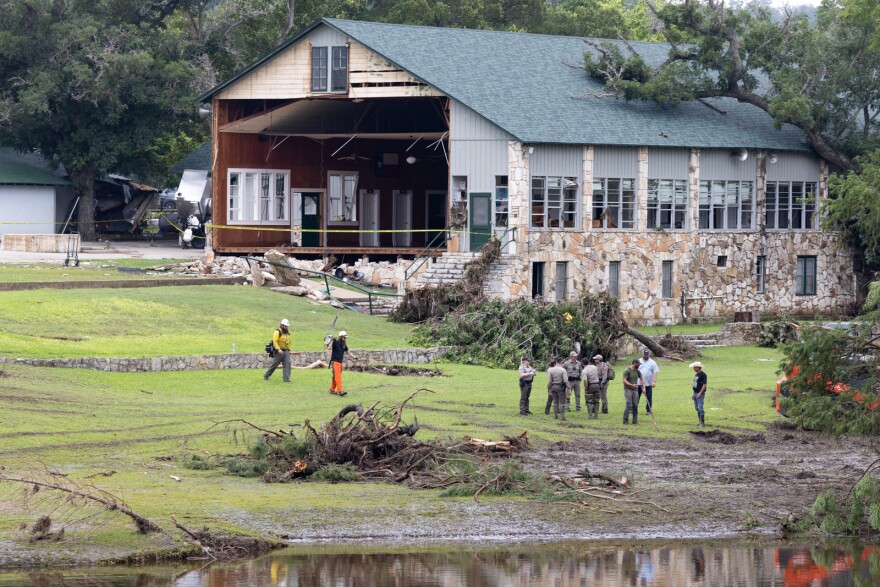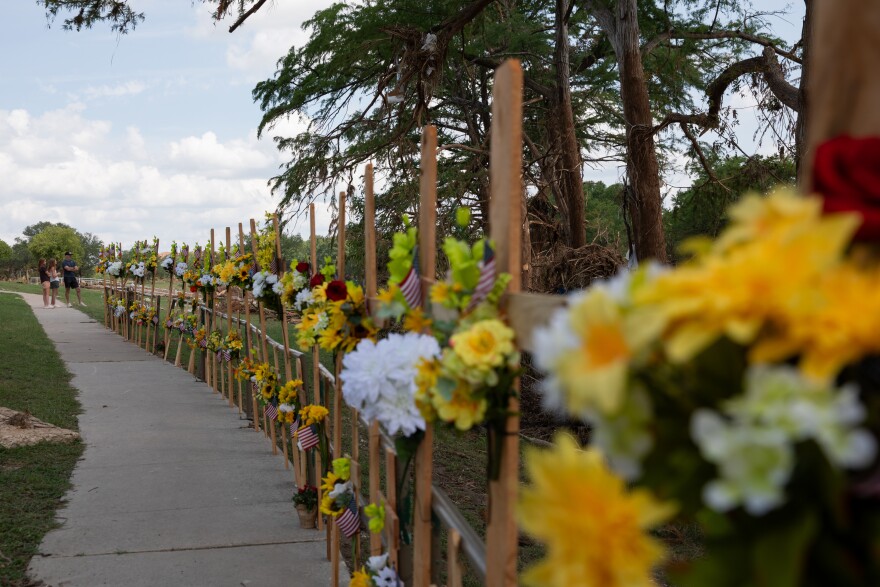In the wake of July's historic flooding that left more than 130 people in Texas dead, Gov. Greg Abbott vowed the state legislature would pass meaningful flood-related measures in their upcoming special session — a session that was originally expected to focus on regulating THC products and a controversial congressional redistricting plan.
A new top goal for lawmakers, according to the governor: Passing transformative legislation that would help insure future flash floods in Texas would never lead to a mass casualty like what the Texas Hill Country experienced over the summer.
Hearings were held. Bills were filed. But the battle over redistricting legislation — including a two-week quorum break by House Democrats — shifted the focus away from flood relief. Weeks went by, one special session ended and another began.
Meanwhile, both parties sounded the alarm, blaming each other for possibly stalling critically needed flooding measures.
Political fray aside, several key changes were made. In the time between the redistricting bill's final passage and the Texas Legislature's close of its second special session late Wednesday night, lawmakers passed several bills related to disaster planning, emergency management and youth camp safety.
Here's a look at the legislation that made it over the finish line — and what these bills will do if Abbott signs them into law.
New rules for Texas youth camps and campsites

July's floods were especially devastating in Kerr County, where 119 people were killed. The lush area around the Guadalupe River is home to many popular summer camps, including some — like Camp Mystic — that Texas families have attended for generations.
Nearly 40 children, mostly campers, were killed in the floods. In response, lawmakers passed two key pieces of legislation focused on tightening safety measures for camps. Both bills cleared the Texas Legislature with near-unanimous votes.
House Bill 1 is focused on overnight youth camps. The measure requires that every camp create a written emergency plan which will have to be approved by the governor's office. If any issues are found within a plan, camps will have 90 days to fix them.
These overnight camps must also train staff and volunteers on emergency procedures, and campers must be taught what they'd be required to do in the event of something like a flash flood or other natural disaster.

The Senate's legislation, Senate Bill 1, covers some similar ground, but also applies to campgrounds, including the dozens of RV parks and camp sites that were flooded earlier this summer.
The bill prohibits camps from building new cabins in floodplains unless specific safety requirements are met. Camps will also be required to notify parents about any existing cabins located in floodplains, requiring them to sign a form acknowledging that they've been informed.
SB 1 also requires camps to have several disaster alert tools on site, like real-time weather radios and emergency public address systems.
While the bills easily sailed through the Texas Capitol, some lawmakers believe they go too far and could, ultimately, hurt camps.
"For over a century, our state has had many thousands of young campers that have benefitted from their experiences at camp," said Rep. Wes Virdell, a Kerrville Republican, on the House floor.
Virdell said the economic strain of the legislation, "will likely cease the operations of many camps and future camper experiences that have had little to no problems in their history of operations."
Emergency preparedness measures heading to the governor

The legislature also passed a measure it hopes will help Texans be more aware when a life-threatening event is headed their way. One of the main ideas talked about in the flood's aftermath was adding flood warning sirens along high-risk areas. That's exactly what Senate Bill 3 would do.
Houston Republican Sen. Paul Bettencourt sponsored the legislation.
"Testimony after testimony confirms flood warning sirens are needed, proven effective, and can get folks to higher ground to save lives immediately," Bettencourt said after an August hearing on the flooding held in Kerrville.
The bill establishes a $50 million grant program to help local communities pay for siren equipment. Exactly what communities will be prioritized will depend on the Texas Water Development Board, which is tasked with identifying the state's most high-risk flood areas.
Lawmakers also sent another measure to the governor's desk, Senate Bill 18, that would let certain local government agencies maintain and repair flood-control dams without getting a state water permit first.
Supporters of the measure say the change will speed up dam maintenance, plus reduce the risk of dam failures, erosion and flooding.
New funding for flood relief efforts

As a direct response to Texas Hill Country flooding, the state legislature passed a measure that directs recovery funding to the areas most affected by July's floods. The measure, Senate Bill 5, does this by creating three separate pots of money.
The first is a $200 million funding match for federal disaster money, plus other needs in the state. The second sets aside $50 million to establish the aforementioned grant program for local government agencies to use towards purchasing flood warning equipment.
SB 5 also provides $28 million for grants that can be used for enhanced atmospheric measurement and modeling of Texas. The goal of that funding is to improve the accuracy of the state's weather forecasting.
Scam protection and volunteer accreditation
After natural disasters, there are often plenty of volunteers looking to help — but there are also those who use the opportunity to prey on vulnerable people.
To address that, the Texas Legislature approved House Bill 20. Also known as the Disaster Scam Response Act, it aims to shield Texans from scams in the wake of natural disasters.
The bill creates a voluntary accreditation program for nonprofits that raise money for disaster relief. The program, which will be operated by the Texas Division of Emergency Management, will provide official seals to accredited groups to show their legitimacy.
HB 20 also creates new criminal penalties associated with malicious solicitation and impersonating a disaster volunteer with the intent of stealing. Depending on the severity of the offense, violating the law could land an offender a short stint in jail or serious prison time.
The Texas Newsroom is a public radio journalism collaboration that includes NPR, KERA in North Texas, Houston Public Media, KUT in Austin, Texas Public Radio in San Antonio and other stations across the state.

